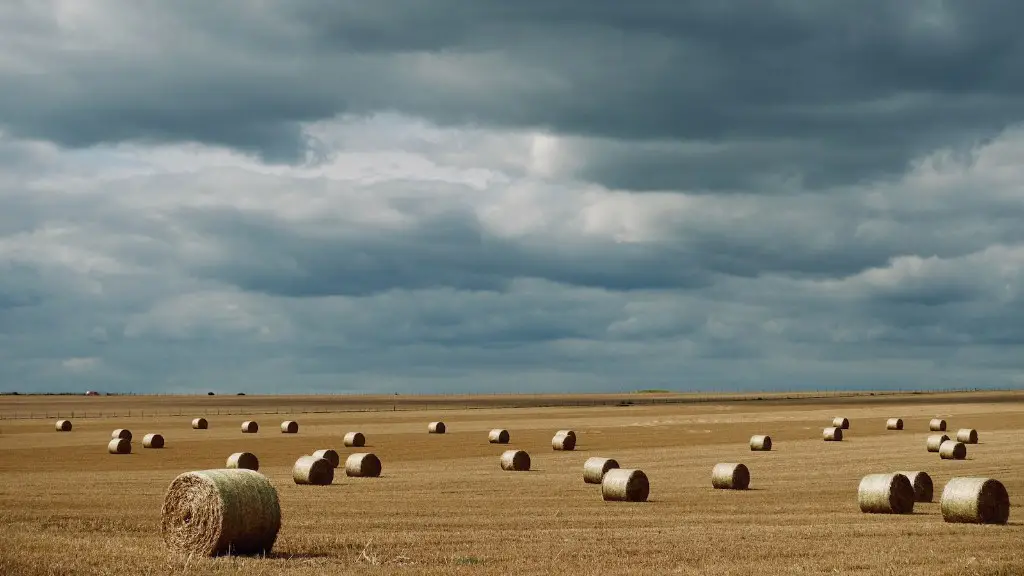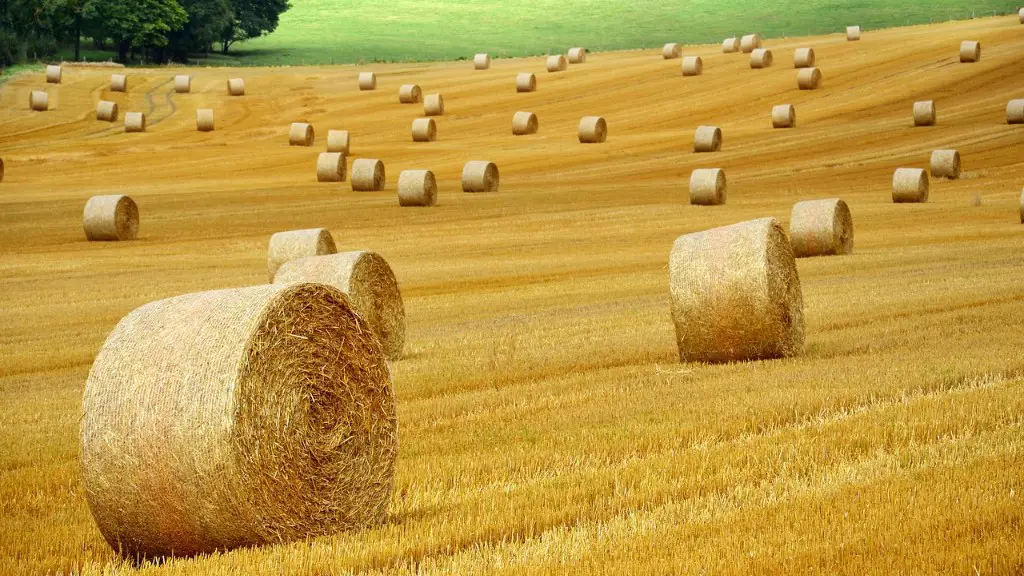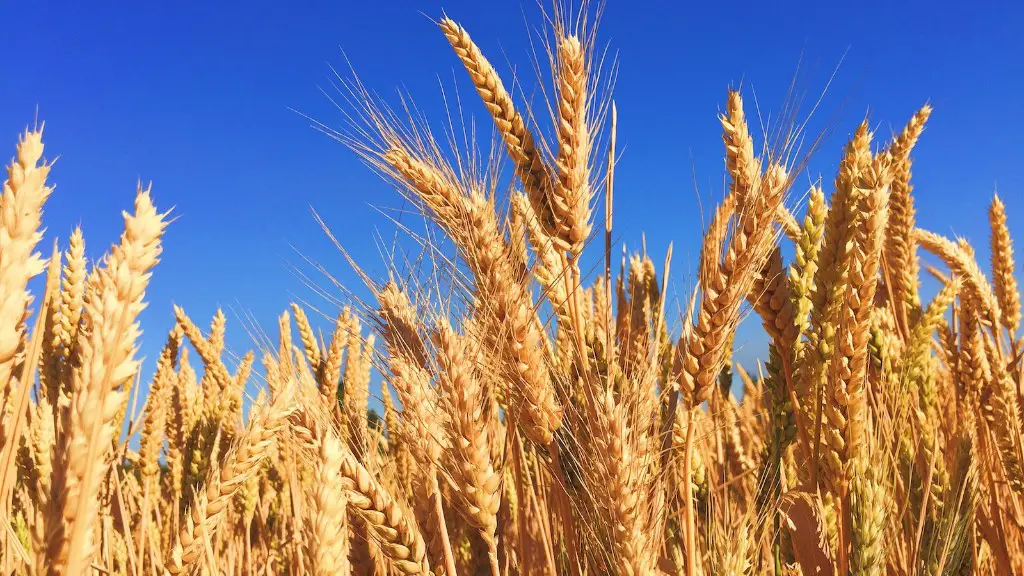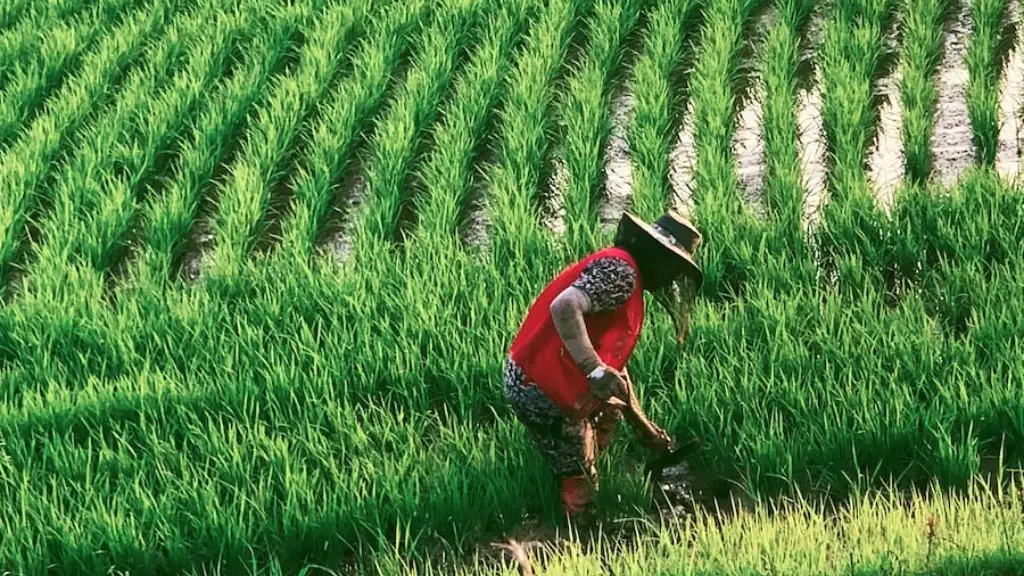Agriculture is one of the earliest human activities. It has been practiced for about five to seven thousand years, and many scholars believe that it began even earlier than this in certain parts of the world. The earliest indications of the practice of producing food has been traced by archaeologists to ancient Iraq and Levant around 11,000-13,000 years ago. Archeological evidence has indicated that the Southwest Asian region was the first area to develop agriculture, and eventually it spread to the Mediterranean, Asia, and Europe. This evidence includes the domestication of plants and animals, the emergence of pottery and grinding stones, and the use of irrigation.
Early Agriculture Practices
The crops grown in the early stages of agriculture in Southwest Asia included wheat, barley, lentils and chickpeas. In some areas, rye, sesame and linseed were also grown. Around 8,000 BC, sheep and goats were being used for milk and meat, and cattle were kept for milk and draft purposes. During this period, crop yields were consistently high due to the use of sophisticated farming techniques, such as irrigation, fertilizers and terracing. This allowed the early farmers to produce a surplus of food, which led to the emergence of settled communities.
The Development of Agricultural Technology
Throughout the millennia, the practice of agriculture has advanced significantly. Early agricultural technology included hand tools, such as axes, hoes and scythes, and animal-drawn ploughs. In the 19th century, advances in mechanized farming saw the emergence of tractors and other self-propelled devices, such as harvesters and seeders. These new machines allowed farmers to produce larger and more efficient yields.
The Impact of Agriculture on Society
The development of agriculture has been credited for much of the success of human civilization. It allowed for the emergence of permanent settlements, and allowed for increased specialization of labor, which helped to accelerate technological development. The increased range of crops made possible by agriculture allowed for more varied diets, and helped to reduce the risk of famine and malnutrition.
Modern Methods of Agriculture
Modern agriculture involves the use of sophisticated technologies, such as genetic engineering, precision agriculture, and hydroponics, to increase efficiency and yields. In recent years, the development of agroecology has been used to improve the sustainability of agricultural practices. Agroecology combines traditional farming practices with modern technology to create sustainable farming systems.
The Use of Pesticides and Fertilizers in Agriculture
The use of pesticides and fertilizers has become widespread in many agricultural systems around the world. While these products can be beneficial for crop production, they can also have damaging environmental impacts. Overuse of these products can lead to increased soil and water contamination, air pollution, and the destruction of habitats for wildlife.
The Challenges Facing Modern Agriculture
Modern agriculture faces a number of challenges, including climate change, soil degradation, and the destruction of natural habitats. Farmers must adopt sustainable farming practices if they are to produce capable of meeting the demands of a growing population. Additionally, ensuring that food is produced in an equitable, ethical and sustainable manner is paramount if we are to tackle global poverty and hunger.
The Impact of Agriculture on the Environment
Agriculture has had a significant impact on the environment. Land degradation is one of the biggest challenges facing the agricultural sector today, as soil quality is being depleted due to the overuse of fertilizers and pesticides. Runoff from farms can also lead to water pollution, with both nutrients and toxins entering rivers and oceans. Additionally, agricultural practices are now responsible for a significant portion of global greenhouse gas emissions.
Technological Developments in Agriculture
In recent years, technological developments and advancements in farm management practices have made it possible for farmers to increase yields and reduce the environmental impact of their operations. Technologies such as the Internet of Things, drones and precision agriculture have enabled farmers to monitor their fields and increase crop yields.
The Role of Governments in Supporting Agriculture
Governments around the world have long been supporting the agricultural sector in various ways. Governments often provide subsidies and incentives for farmers to adopt sustainable farming practices, and to increase the efficiency of their operations. Additionally, governments can help to reduce risks that farmers face, such as price volatility, by providing insurance schemes and other mechanisms.
The Gender Divide in Agriculture
Women make up a significant proportion of the agricultural workforce in many countries around the world. Despite this, they face numerous challenges, such as limited access to land and financing, unequal wages and limited access to resources and support. Governments, NGOs and other organizations have been working to address these issues, however, much more needs to be done to ensure that women’s rights in agriculture are respected and protected.
The Increasing Use of Artificial Intelligence in Agriculture
The increasing use of artificial intelligence in agriculture is allowing farmers to monitor and manage their fields with greater efficiency. AI-powered technologies, such as smart sensors, machine vision and robotics, are enabling farmers to boost yields and reduce waste. Additionally, AI-powered systems are being used to detect and diagnose disease in crops, and to optimize water usage.
Impact Investing in Agriculture
Impact investing is playing an increasingly important role in the agricultural sector. Investors are increasingly turning to agricultural projects that deliver positive social and environmental returns in addition to financial returns. These investments are enabling farmers to access the financing they need to adopt sustainable farming systems and to upgrade their operations.



